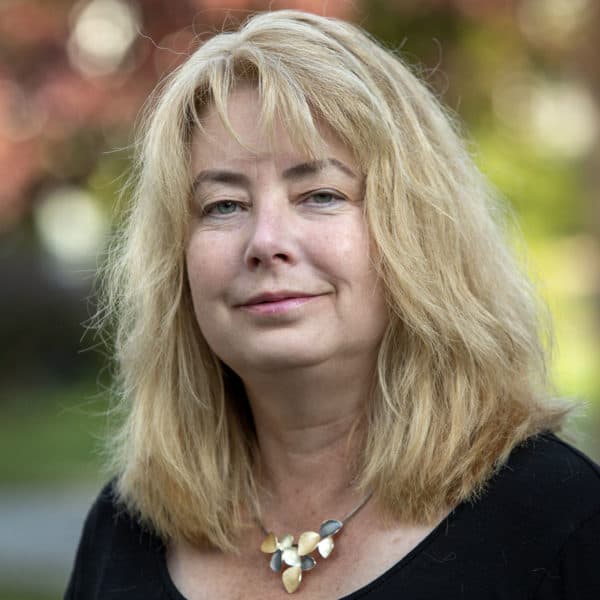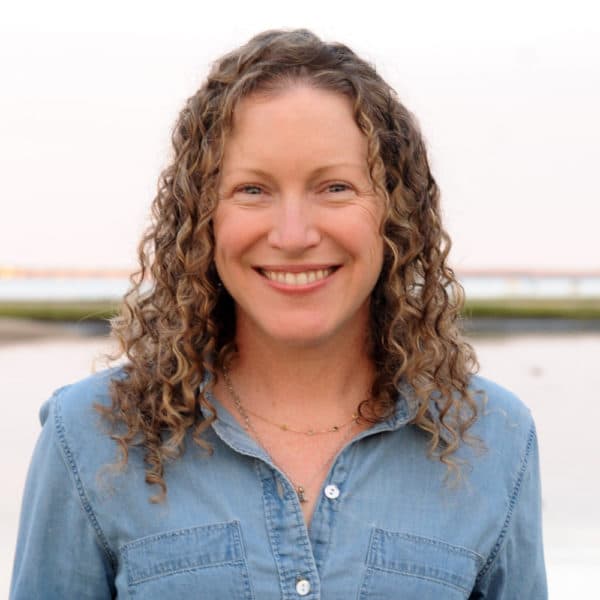Advertisement
Year In Review
Cognoscenti's best stories of 2022
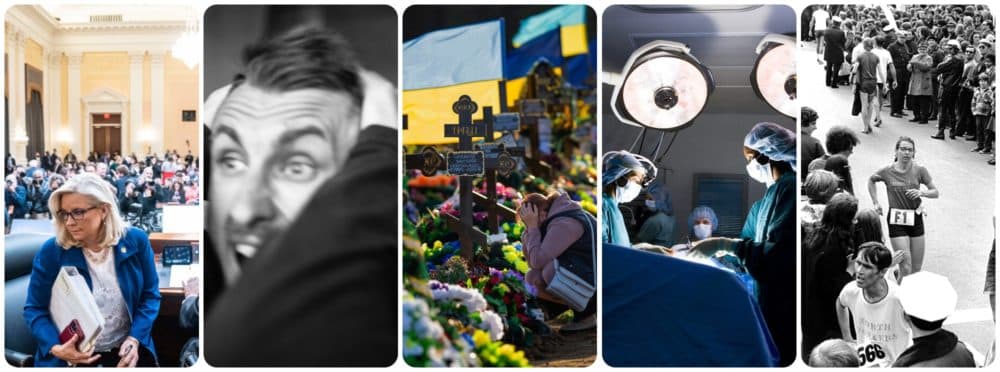
There is a line in the HBO miniseries “Station Eleven” (based on the brilliant 2014 book by Emily St. John Mandel): “There is no before.”
If you know the story you get the reference. If not, my one-sentence summary: A flu pandemic wipes out 99% of the world’s population, and civilization as we know it abruptly ends. “No more diving into pools of chlorinated water lit green from below. No more ball games played out under flood lights. No more porch lights with moths fluttering on summer nights,” Mandel writes.
I didn’t know the book — or the show – until it was introduced to me in an essay by Anil Shukla I worked on last January. Anil is the chief of emergency medicine at St. Luke’s, a community hospital in New Bedford. At the time, his commentary was a searing first-person account of what it was like to work in a hospital sagging under the weight of a pandemic, walloped by persistent staffing shortages.
Nearly a year later, the situation isn’t much better. The emergency departments at St. Luke’s and other hospitals are jammed — wait times are hours long, patients are parked in hallways, many are “boarding” in the ER because of staffing shortages at nursing facilities. There’s a “tripledemic” now.
Life during the height of the pandemic was very scary, but also pretty simple. Life in the “after” — a world that looks similar but isn't the same — is more complicated.
While we’ve all been very busy getting "back to normal,” the “after” crept up on us. But it's only the “after” now. In many of the essays we published this year, our writers were starting to make sense of that. And how our continued longing for the “before”-- and the resistance to accept the world as it is now — can be exhausting and limiting.
The essays below share our story of 2022. It was a year punctuated by the omicron variant, the Jan. 6 hearings, the Supreme Court’s reversal of Roe v. Wade, threats to American democracy, the war in Ukraine, and walking — so much walking. It was also the year we celebrated Cog’s 10th birthday.
This collection of pieces reflects our most-read pieces, as well as the writing that occupied the most space in our hearts and brains. It’s our honor to do this work, to be a space where our writers and readers and listeners can find good thinking and connection.
Thank you for giving us the gift of your time.
Advertisement
-- Cloe Axelson
Our 11 most read stories of 2022
The 11 essays below are the Cog pieces that garnered the most reader attention.
1.My sister’s death was hard enough. The silence afterward was unbearable
Lynne Reeves Griffin's sister, Cheryl, died by suicide seven years ago. When people become uncomfortable at any mention of my sister, she writes, I feel excluded from the mourning process. (October 3)
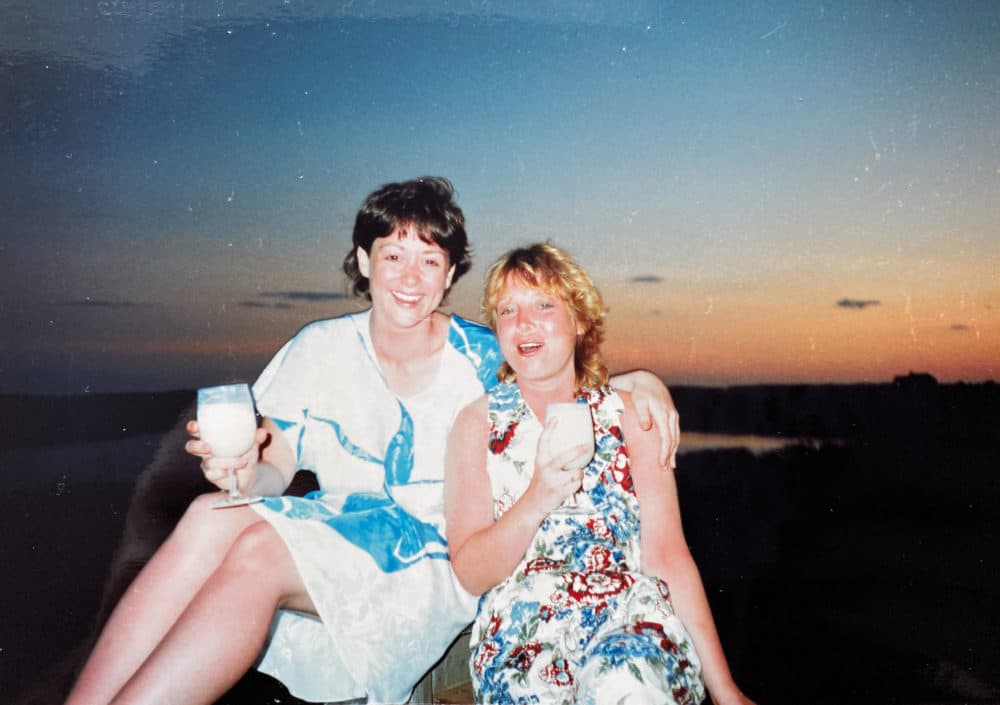
2. Why doctors like me are leaving medicine
Caroline Stowell quit medicine before the pandemic. But the burnout and pressure that caused her to walk away are worse now than ever before. (March 10)
3. 'There is no before': Life in the emergency department, two years into the pandemic
Anil Shukla is the chief of emergency medicine at St. Luke's, a community hospital in New Bedford. It isn't only the pandemic we need to be talking about, he writes, it's what happens after this tsunami recedes, and how we help the patchwork of depleted people left in its wake. (January 26)
4. Everything is fine, until it's not
“Pray for boring days,” my grandmother used to say. I never really knew what she meant. Now, I think I do, writes Holly Robinson. (November 22)

5. Understanding (and taming) your COVID anger
Two years into the pandemic, exhaustion, cognitive overload and perceived injustice have combined to make people very, very angry. Dr. Molly Colvin explains what’s happening in our brains. (February 18)
6. I'm a high-risk OB-GYN: Abortion helps me save lives
This is a skill I never enjoy using. But as a high-risk obstetrician, it is absolutely the thing I do that has saved the most lives, writes Dr. Erika Werner. (July 1)
7. 'Night is now falling': This is what dying looks like
About a year after her cancer diagnosis, Grace Segran decided to stop treating the disease. Her hope is to get back to the business of living — for at a limited time at least, until the cancer takes over. (June 10)
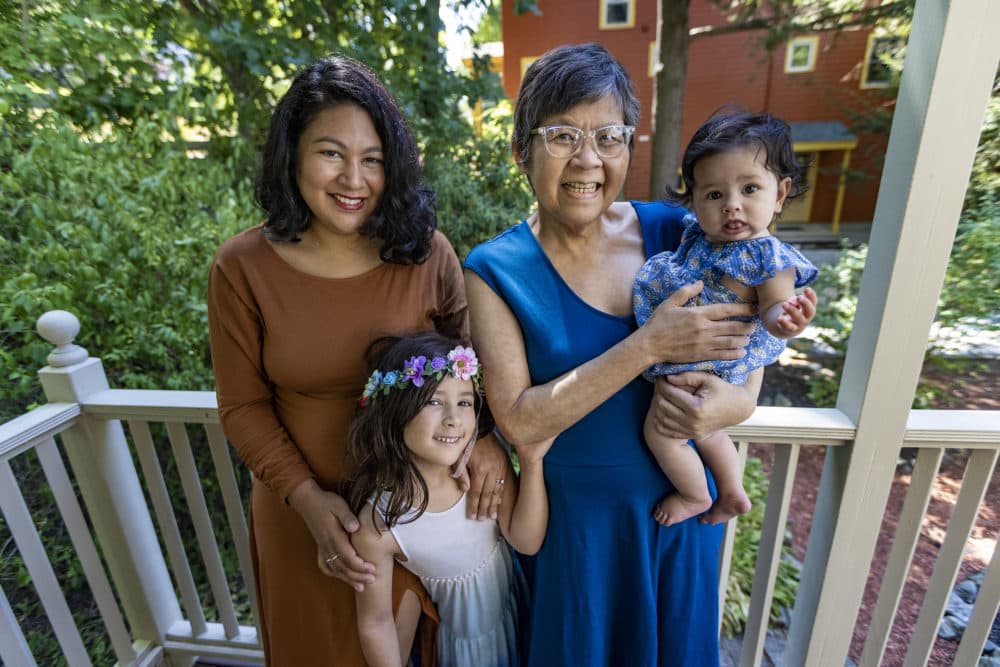
8. For parents of young children, vaccines offered a glimmer of hope. Now what?
Like a lot of parents, I hitched my hope for the future on being able to vaccinate my young daughter, writes Rebekah Diamond. Feeling the possibility of normal life slip away, even temporarily, is exquisitely painful. (January 21)
9. When women weren't allowed, Sara Mae Berman ran Boston anyway
This year marks 50 years of women "officially" running the Boston Marathon. But by 1972, Berman was a seasoned pro — having won the race three times already. (April 15)
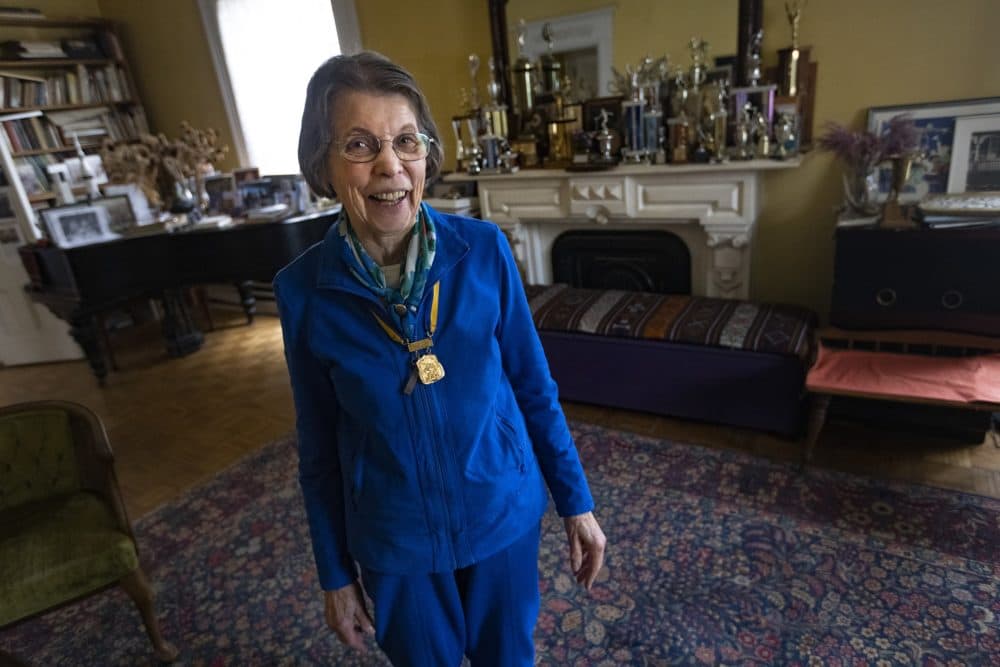
10. My son decided against college. To my surprise, he's where he should be
These days, my son is a different person, writes Erica Youngren. It turns out he’s not unfocused — he just wasn’t inspired by the intangible rewards of school work. (November 21)
11. Lost and found: Walking 500 miles on the Camino de Santiago
It can be hard to hear the wisdom of one’s interior life in the cacophony of our contemporary world, writes Anne Gardner. (October 7)
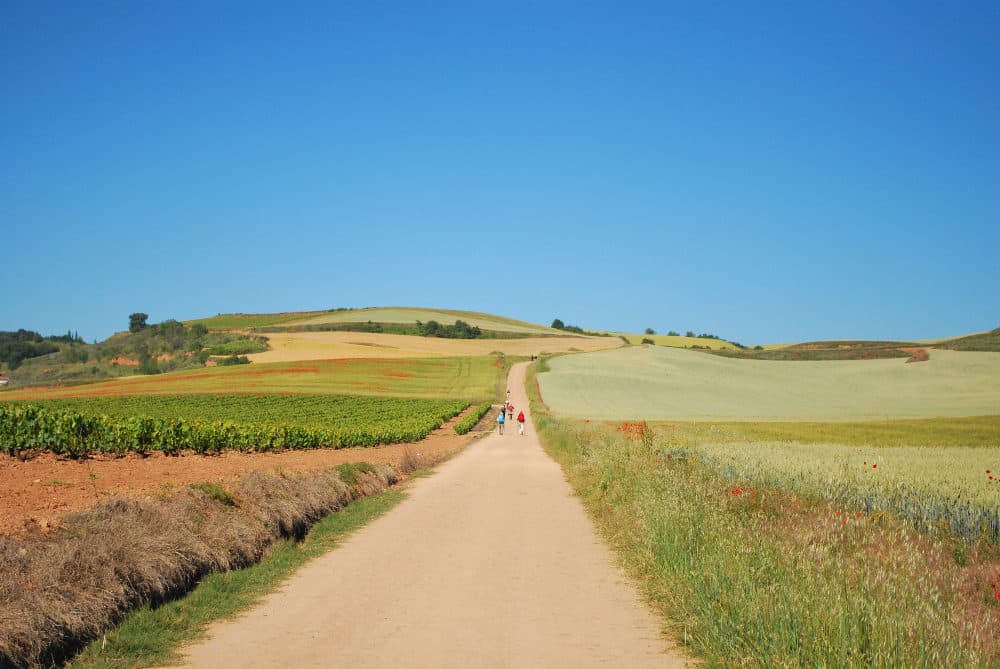
13 More favorites from your Cog editors
We are lucky to work with a community of writers who trust us with their stories and ideas. Read a brief commentary from the editors about what went into these essays, and why we love them.
1. How to hike through 25 miles of green space in Boston
During the first pandemic winter, Miles Howard did a lot of walking around Boston. The experience inspired him to plot a 25-mile urban trail — the Walking City Trail — that connects many of the city's green spaces. (June 16)
CA: Miles is a regular contributor to Cog. When his press release announcing the Walking City Trail landed in my inbox, I was immediately interested. WBUR staff photographer Robin Lubbock and I spent a couple of hours on the trail with Miles. The audio version of this piece is especially immersive — it really sounds like he's in the woods, and you’re right there with him. It’s inspired me to walk for walking’s sake a whole lot more, too.
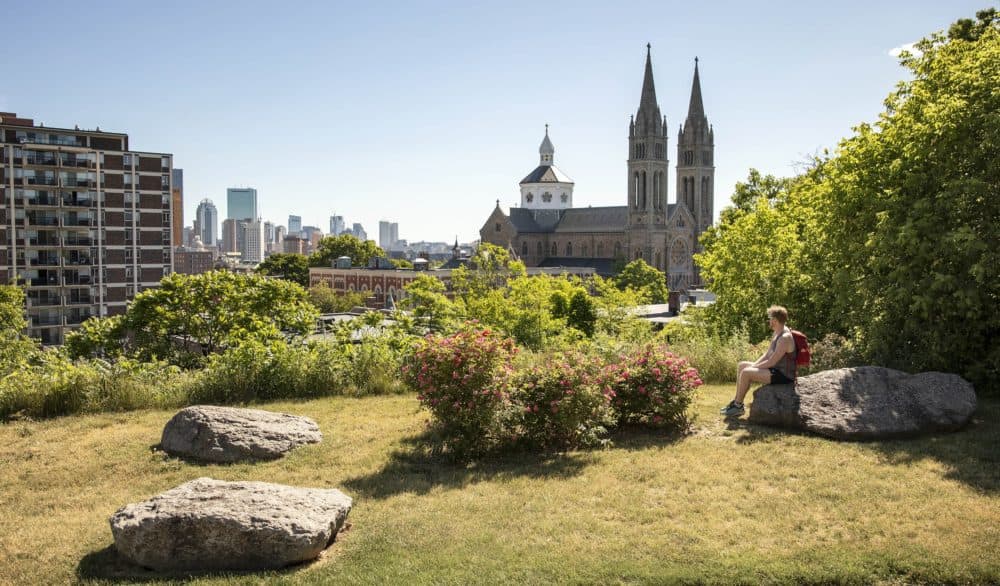
2. Facebook Marketplace: A love story
Reading through those listings, I can’t help imagining mini-soap operas, writes Julia Claiborne Johnson. I could stop anytime, maybe, but why should I? (Oct. 14)
SS: On face value, this piece is about going down the rabbit hole of Facebook Marketplace (relatable), but it’s also about chasing stories, with a side of nostalgia for when life was like a “half-naked apartment,” still in a state of becoming. If you’ve read Julia’s two novels, you know she makes you laugh — then, almost sneakily, she makes you feel your feelings.
3. 'I can't take this photo. I must take this photo': There are images you have to see from Ukraine
Photographers have the courage to show us exactly what’s happening in these fraught and dangerous situations, writes Karen List, and newsrooms must have the courage to publish them. (March 17)
CA: Karen List is a professor of journalism and ethics at UMass Amherst. When Karen wrote this essay, I was enthralled with photojournalist Lynsay Addario, who, at the time, was on assignment for The New York Times in Ukraine. “We have a civic responsibility to look at the toll in human lives, and then decide what to do about it," Karen writes. Bearing witness is something we can and must do.
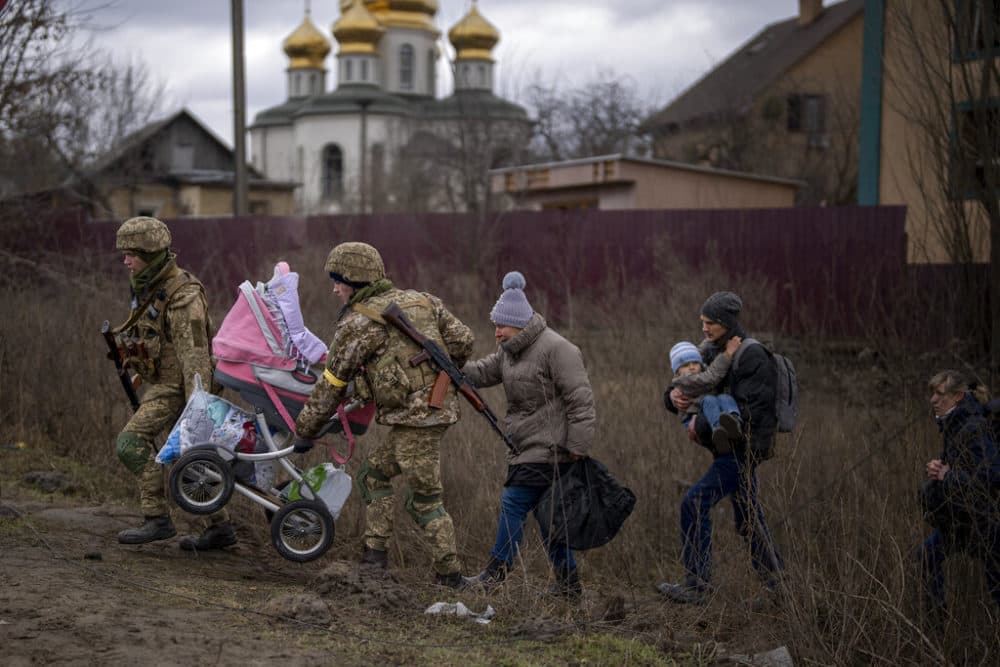
4. What the Jan. 6 hearings are really about
The central goal of the Jan. 6 hearings shouldn’t be limited to retelling the story of the insurrection. It should be to help voters recognize how fragile our democracy has become. (June 8)
CA: The work of the Jan. 6 committee was one of the biggest political stories of the year. It also fed in to an enormous question looming throughout 2022: Is American democracy OK? This essay, by Steve Almond, was the most-read piece on the hearings Cog published.
5. 'My girls are part of that hope': Why I talk to my daughters about hard things
Hard conversations, like advocacy, must be ongoing, writes Anri Wheeler. (July 14)
SS: In passing drafts back and forth and finding the shape of this essay, Anri and I talked about hope. She told me about Mariame Kaba, and how she frames hope as a discipline. I’ve thought about this often, how hope — much like talking about hard things, and doing hard things — is like a muscle. It’s work, and you have to keep using it.
6. For Paul, 'everyone mattered': Colleagues and friends remember Paul Farmer, in their own words
Dr. Paul Farmer died last week at 62. More than a dozen of his friends and colleagues share their most memorable stories, reflecting on his life and legacy. (Feb. 25)
CA: Almost 13 years ago, I worked with the nonprofit Partners In Health (PIH) just after the devastating earthquake in Haiti. It was a formative experience that taught me about radical empathy and doing hard work with friends. When Dr. Farmer died unexpectedly in Rwanda, I wanted to help remember him. It’s meaningful to me that so many of the people who shared their stories — in the midst of their own extraordinary grief — felt the piece was true to Farmer’s humanity and legacy. We also published this beautiful remembrance by Jim Ansara.
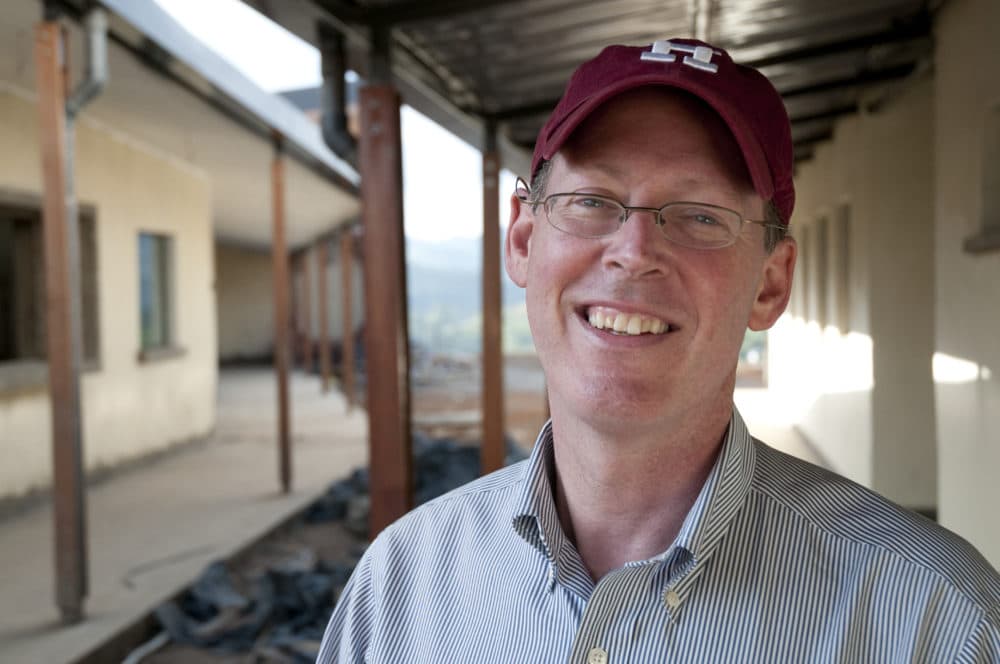
7. I'm a 12-year-old Muslim girl. Where are people like me in the books I read?
Marwa Bacare, a rising Boston seventh grader, writes about the impact of growing up without Muslim girls as literary heroes. (July 6)
KB: Marwa Bacare might be the youngest author Cog has ever published. But she writes confidently and poignantly about what it’s like to grow up without seeing girls like her — Muslim girls who wear the hijab, and often, children from single-parent families — as main characters in literature. Marwa wants to be part of the solution — and I can’t wait to see it.
8. Who are we when we don't do the thing we love anymore? Serena is brave enough to find out
Serena Williams wants to be more than the greatest tennis player of all time, writes Theresa Okokon. She wants to define who she is, and she wants that definition to be up for reinvention, on her terms. (Sept. 7)
SS: You don’t have to be the GOAT to feel grief in the transition of finding a new path. Theresa writes about stepping away from a yoga practice that defined and nourished her – until it didn’t. “I, too, have quietly questioned if what I wanted is still what I want. And I, too, have taken quiet steps in a new direction.” In one way or another, we’re all different from the version of ourselves that existed three years ago. Theresa’s story reminds me, sometimes it’s not just okay to let go; it’s necessary.
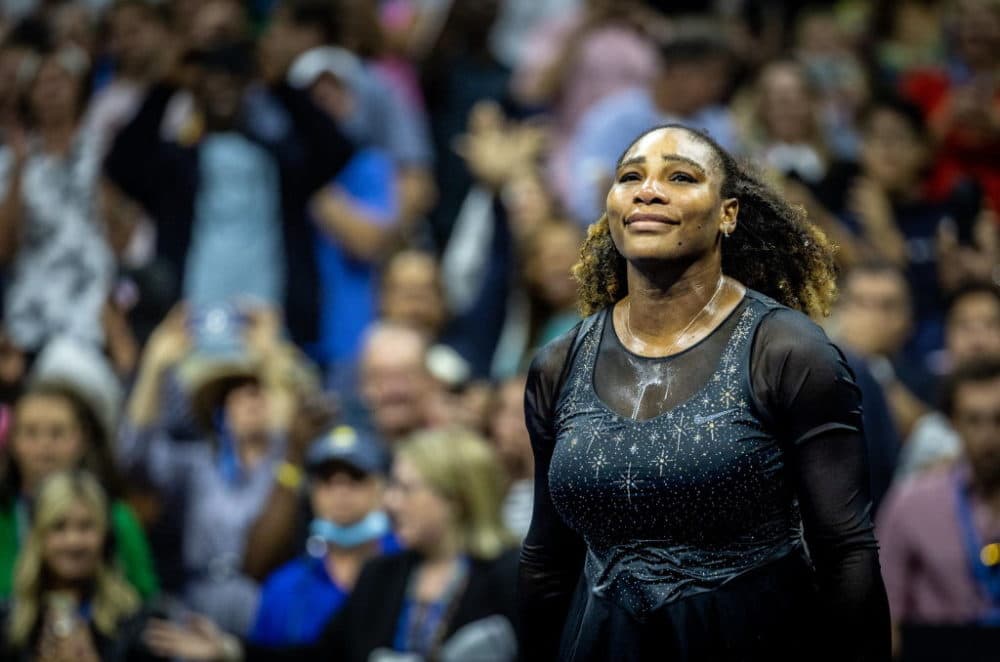
9. I didn't cry when I took my son to college. Then I got home
I pull into our driveway and see the house listing, as it prepares to welcome back three, not four, writes Bill Eville. (Sept. 8)
KB: I love Bill’s writing because he often leads us through time and place, so skillfully that we don’t realize how much area he covers. This essay moves from his son’s freshman year dorm room to a long-ago car trip with his kids, from a frustrated young father to an older, mourning father. I’ve pre-ordered “Washed Ashore: Family, Fatherhood, and Finding Home on Martha’s Vineyard,” Bill’s book of linked essays on many of the same topics he covers in his Cog pieces.
10. At UVA, choosing to believe in 'a path out of darkness'
These moments of gun violence and school shootings defined my adolescence, and I’m thinking about them as I park my car in the faculty parking lot at the high school where I now teach, writes Caitlin Terry. (Nov. 18)
SS: When the unthinkable happens over, and over, and over again, we can find ourselves feeling numb. Then it hits a place you’ll always call home. Caitlin grew up in Charlottesville, went to UVA, and now teaches high school history. She writes about how while gun violence feels baked into the narrative, as long as we’re still here, as long as we struggle, there’s light to be found in the darkness.
11. ‘Five moms gone electric’: The Lazy Susans will rock you
We’d been part of these crowds for years, writes Joanna Weiss. But this time, we were the ones getting ready to step on the porch and play: five suburban moms — gone electric. (Oct. 25)
CA: I’ve worked with Joanna a lot over the years … but I’d never seen her like this before: on stage, singing, in a neon pink mesh shirt. In the process of producing this piece I went to Milton Porch Fest and drank a very delicious dark & stormy during a basement band practice one Sunday night. The Lazy Susans also played at Cog’s 10th anniversary event in October. I say: Come for the music, stay for the sisterhood.
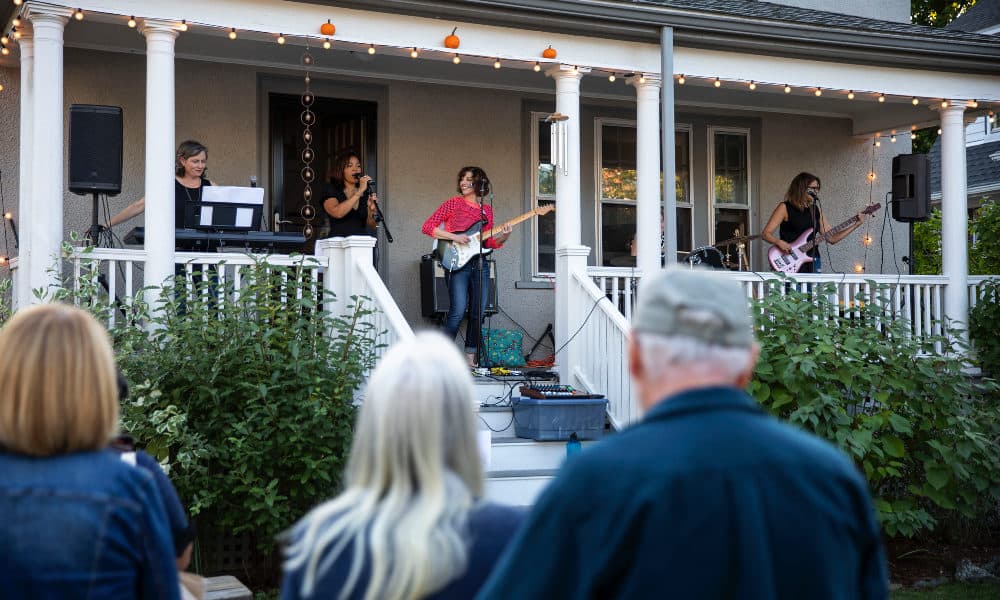
12. At the pool, my boy can enjoy summer like everyone else
Something profound happens here at the public pool, with all its vivid life on display, writes Alysia Abbott. It's a richness that makes space for all sorts of differences, including my son's. (Aug. 12)
CA: I remember going to my hometown’s pool on a suffocating August afternoon. I remember the warmth of the pavement beneath my wet towel, cannonball contests with friends, anticipation of the ice cream truck. In this evocative piece — which is especially wonderful to listen to — Alysia reminds us how important these public spaces are for helping to normalize all sorts of difference.
KB: Also, don't miss Alysia's essay about mothering, as a daughter — her mother died in a car crash when Alysia was 2 — and as a parent. The essay also touches on the backstory of her memoir, “Fairyland;” the movie version is premiering at Sundance next month.
13. Backstreet’s back this holiday season — thanks to their music, I am too
I am a woman obsessed, writes Thuy Phan. But more truthfully, I’m a woman immersing herself in a past love, remembering who she used to be — in order to feel more alive in the present. (Dec. 9)
SS: This is Thuy’s first published piece of writing, and it highlights something I love about Cog — the breadth of writers we get to amplify. Not to mention the joy it brings me to read lines like this: “Who knew that five middle-aged men performing synchronized choreography ... would transport me back to my screaming tweeny-bopper self and bring me so much glee?” We carry the weight of the world as we grow older, but we also carry the joy we found when life was simpler.
Celebrating 10 years of Cognoscenti
We spent the fall marking Cognoscenti's 10th birthday: We've published some 4,700 essays, by 1,100 authors in a decade marked by a historic election, a global pandemic and a relentless news cycle.
We wrote four essays-from-the-editors, highlighting what goes into the work and how we think about our coverage.
We produced 10 commentaries for the radio that aired on WBUR's Morning Edition. Three of our contributors shared their stories with our colleagues at Radio Boston. And we organized a celebratory event at WBUR's CitySpace in October.
On we go to the next decade. We hope you'll come along with us.


